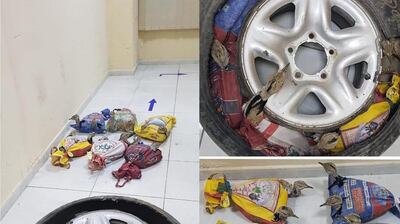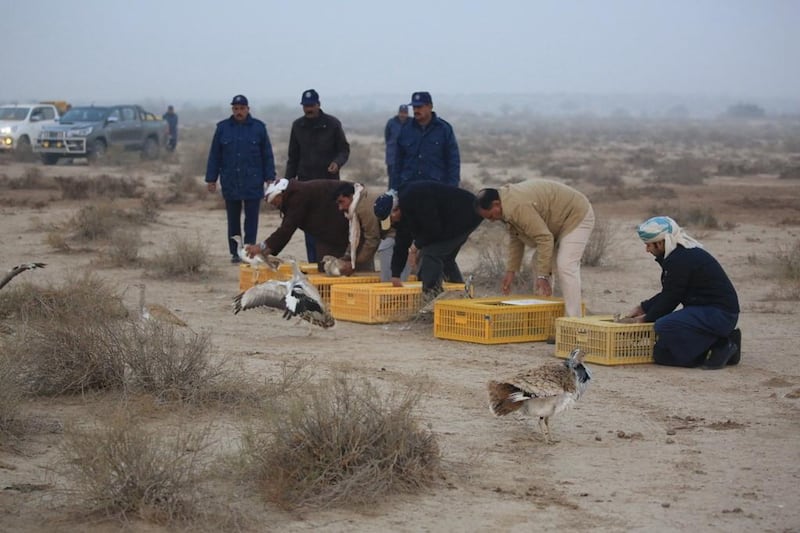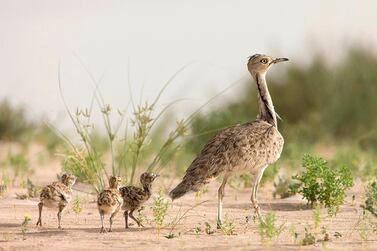Rare Asian houbara birds rescued from the clutches of smugglers in Ras Al Khaimah have been returned to the wild in Pakistan.
Customs officers intercepted 12 of the birds, wrapped in tape and hidden in a car tyre, on the Oman border in January.
One bird was euthanised as it was found to be carrying contagious diseases, but the surviving 11 bustards were rehabilitated by the International Fund for Houbara Conservation (IFHC).
“Thanks to the swift action of UAE Customs and the expert rehabilitation work of our scientific team, the 11 Asian houbara have been saved and released with no impact on the UAE’s delicate ecosystem,” said Majid Ali Al Mansouri, IFHC’s managing director.
“The release location in Pakistan was handpicked to give the bustards the best chance of rejoining their migratory route.
“We thank our conservation partners in Pakistan for their fast response and professionalism in helping the fund release the rescued bustards.”
Houbaras are sought-after by falconers, as they are the traditional prey for hunting birds.

The finest sport falcons can command hundreds of thousands of dirhams at auction, with the best birds trained in hunting the houbara.
Although driven close to extinction, the species is making a recovery thanks to a government backed breeding programme in Abu Dhabi.
The 11 rescued birds have been fitted with GPS trackers, so scientists can monitor migratory routes.
Three weeks on from their release, each of the birds has survived and is heading north after being released in two groups in Pakistan’s Cholistan Desert.
The first group of five female Asian Houbara were released in Rahimyar, approximately 120 kilometres from the country’s eastern border with India.
A second group of five female birds and a single male were released approximately 40 kilometres south of the city of Khanpur.
With smuggled houbara typically suffering tremendous stress from capture and illicit transportation, IFHC data shows just 10 per cent of wild birds survives being smuggled into the UAE.
It is also common for smuggled bustards to carry diseases which can have serious sanitary and health implications to falcons that hunt them, and fauna in the wider eco-system.
As part of IFHC’s ongoing education efforts with the UAE and wider GCC falconry community, it is engaging falconers to highlight the illegal trade’s role in the historic decline of houbara populations.
If caught and prosecuted, smugglers can face a fine up to Dh50,000 or six months in prison.
“Smuggled houbara pose a great danger to the falconry community,” said Mr Al Mansouri.
“Had these birds been sick and carried diseases into the eco-system, there would have been a significant risk to prized falcons who can contract fatal infections hunting sick houbara.
“We will use this case as a deterrent to the regional falconry community.”







